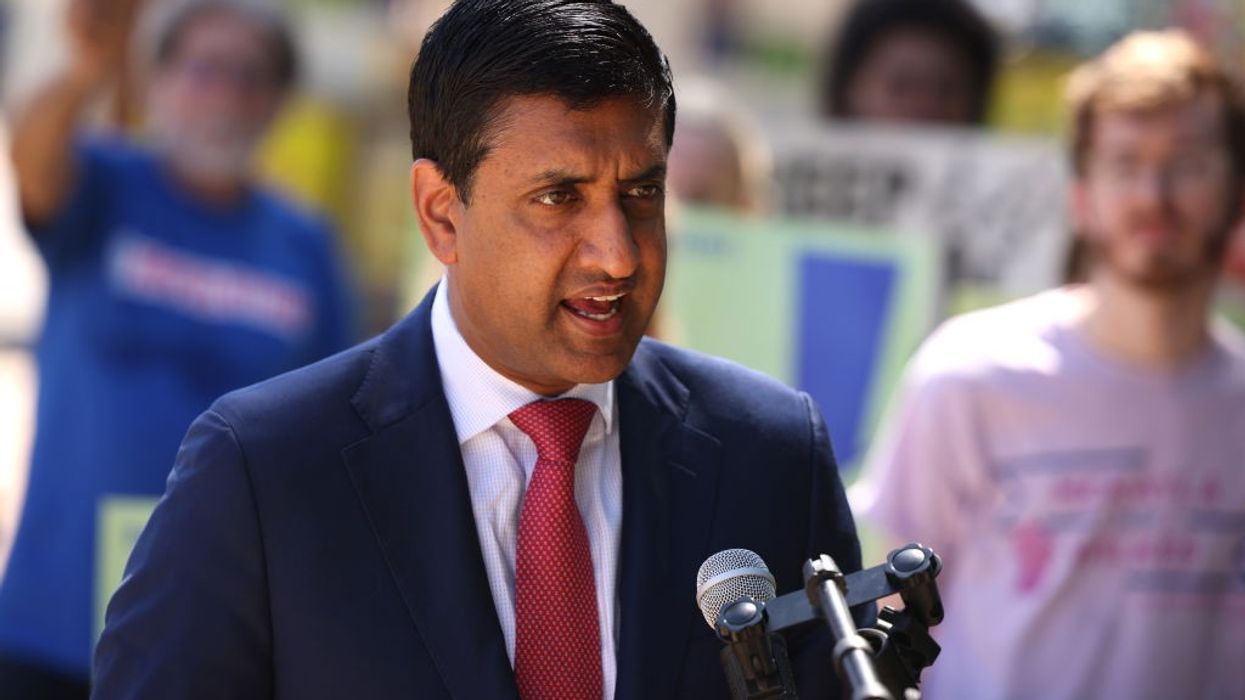The recent India-specific CAATSA sanctions waiver by the U.S. House of Representatives is the most consequential vote since the civilian nuclear deal, an influential Indian-American Democratic Congressman has said, asserting that U.S. President Joe Biden will expedite the waiver because he has the “political mileage” and the backing of 300 members of the Congress.
In July, the U.S. House of Representatives passed a legislative amendment that approves an India-specific waiver for punitive CAATSA sanctions for its purchase of the S-400 missile defence system from Russia.
Authored and introduced by Indian-American Congressman Ro Khanna, the amendment urges the Biden administration to use the authority to provide India with a Countering America’s Adversaries Through Sanctions Act (CAATSA) waiver to help deter aggressors like China.
“The U.S.-India relationship has never been more critical. When you see an expansionist China at an expansionist Russia, I believe this is going to be a defining relationship of the 21st century. And we needed to send a clear message to India that America values this relationship as very important,” Mr. Khanna told PTI in an interview.
The legislative amendment was passed last month by voice vote as part of an en bloc (all together as a single unit) amendment during floor consideration of the National Defence Authorisation Act (NDAA).
The legislation is yet to be passed by the United States Senate before it can be sent to President Biden to be signed into law.
“Having the threat of sanctions hanging over India undermines our ability to build that strong strategic relationship. It undermines the ability to strengthen the QUAD with Australia and Japan,” the 45-year-old Democrat said.
CAATSA is a stringent U.S. law that authorises the U.S. administration to impose sanctions on countries that purchase major defence hardware from Russia in response to Russia’s annexation of Crimea in 2014 and its alleged meddling in the 2016 U.S. Presidential elections.
The bipartisan vote, which had the support of 300 members of Congress, is the most consequential vote for the India-U.S. relationship, he noted.
“So, this amendment where you have 300 members of Congress telling President Biden to waive the sanctions is an enormous show of support for that relationship. It’s the most historic vote in the House, …since the India civilian nuclear deal. And it doesn’t so much matter whether it’s ultimately in the NDAA or in the Senate, because President Biden has the ultimate authority and this gives him the political mileage to waive off those sanctions,” Mr. Khanna said.
Mr. Khanna, who was part of the high-profile delegation led by U.S. House Speaker Nancy Pelosi that travelled to Taiwan recently, said that his legislative amendment passed by the House had the support of the Biden administration.
“It would never have passed the House if the White House had not indicated a positiveness. I mean, you would never have had the amendment ruled in order or have had a vote on it or had it gone, without the support of the House Foreign Affairs chair, Greg Meeks. We have been in touch with the National Security team with the state department and they appreciated it,” he explained.
When asked why Mr. Biden has not issued the national interest waiver to India so far, Mr. Khanna said the President has his hands full with a wide range of international and domestic challenges.
“He’s dealing with Ukraine. He’s dealing with China, and he probably wants to see the process play out in the Senate. But this was a strong step in that direction of him having the wave,” Mr. Khanna noted.
He said the administration understands the strategic importance and understands the need to strengthen the defence relationship with India.
“The administration understands there are times we will disagree and we want India to condemn the Ukraine invasion, but that we still have to forge ahead on building a strong relationship, understands the importance of human rights,” he said.
Mr. Khanna has also proposed India become the sixth nation in the NATO plus arrangement to bolster defence ties.
“Right now, you have NATO plus five. Basically, Australia, South Korea, New Zealand, Israel and Japan get expedited arms, as NATO does. And I’m working to add India to it. I had introduced that earlier, and this amendment builds momentum for that,” he added.
(PTI)




